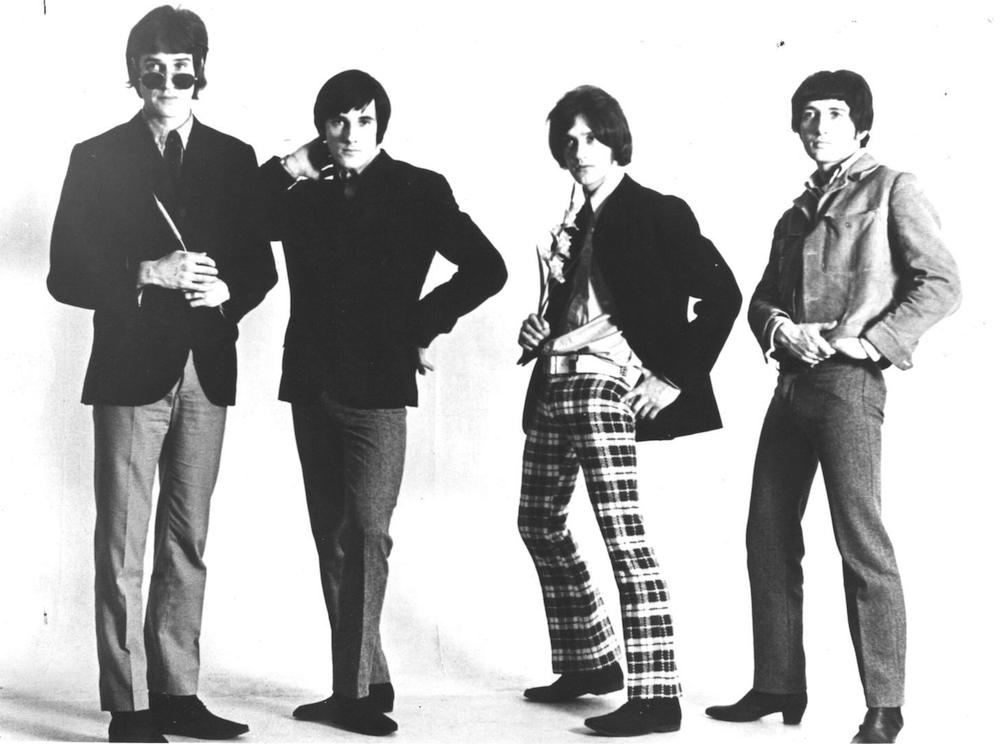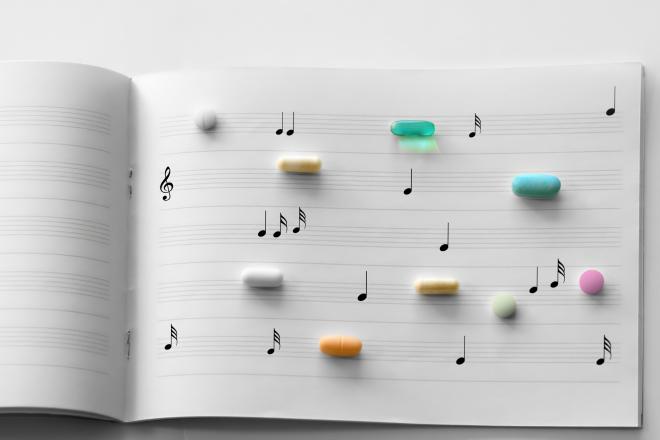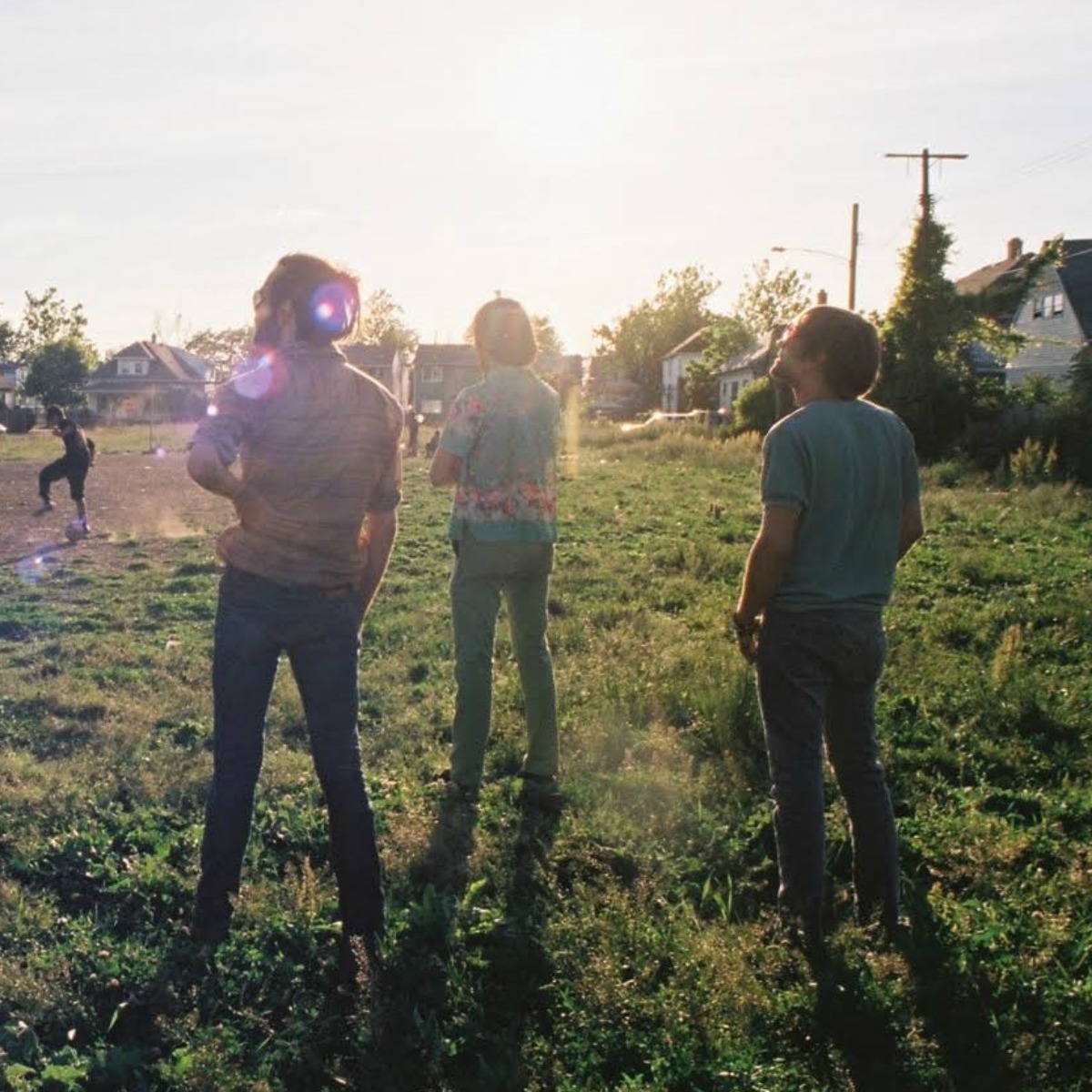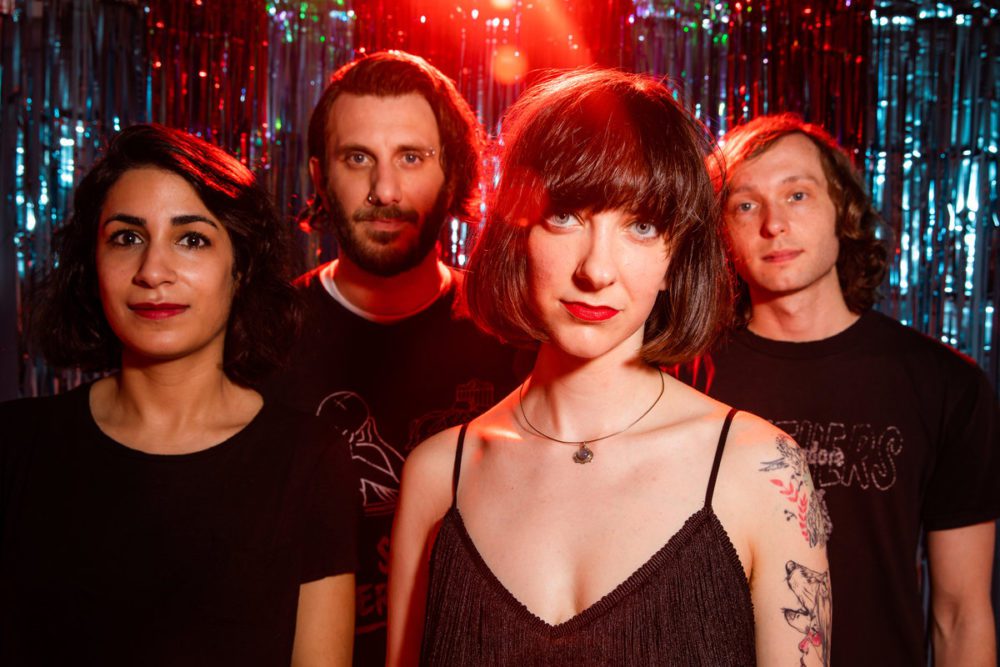
Waterloo always sounded like an exotic place to me, an English garden oasis dotted with fountains and plum trees and those little stone statues of naked angel-babies. The name suggested a swan pond, croquet matches, and crustless triangle sandwiches served at 3 p.m. for tea. Little did I know that the “Waterloo” Ray Davies was singing about in the Kinks’ “Waterloo Sunset,” which first topped the pop charts 51 years ago this week, in fact referred to a bustling train station in the center of London, far removed from the green gardens I’d imagined.
It took living in London to come to this realization. Prior to moving there at 21, I had a vague and filmic idea of the place, which would be better described as ignorant and romantic. I had no perception of London as a real metropolis. Like my relationship with New York before moving here, I simply knew I would love it. I decided to love it. And most of that preemptive love came from the British music I listened to as a child and into my teenage years. The influence of U.K. rock stars and punk urchins so influenced my tastes that as a middle schooler I dreamt up a future business plan that paid homage to my heroes across the pond.
When I was about 12 or 13, I let my dad in on this grand scheme of mine. I told him that when I was older, I was going to open a concert venue (/record store/clothing store/cafe, obviously). I would call it, “The London Underground.” My dad, a person who had actually been to London, as well as many other places, explained to me that this name was already taken, and the use of the word “underground” in that name did not mean “obscure” or “edgy,” but “underground” in the most literal sense. This was because that name belonged to the London metropolitan commuter train, which was in fact, subterranean. It would take me a decade to experience what he was talking about firsthand, but by then I’d at least figured out that owning your own brick and mortar business was a pain in the ass, anyway.
For years I subconsciously learned about different parts of London from songs by my favorite bands. The names of neighborhoods and streets would slip out of the mouths of the Jam’s Paul Weller and the Streets’ Mike Skinner, and funnel straight into my memory, where I kept them tucked away as useless scraps of information about a place I’d never been. The English music I loved so much was imparting me with a partial education on the city all along, but I wasn’t able to utilize until I moved there.
I knew from my favorite Tom Waits songs, for instance, that the “dirty old river” Ray Davies sang about in “Waterloo Sunset” was pronounced “temms,” not “Thames” despite its spelling. I’d like to think this saved me from being pegged as “too American” by my British friends, but my refusal to call bathrooms “the toilet” doomed me from day one. I knew there was a Wardour Street from one of the many Jam songs I loved in college, though I did not know where this “Wardour Street” was. When Morrissey sang about “Battersea” in “You’re the One for Me, Fatty,” I thought he was saying “All I’m about to see;” I had no idea he was talking about a South London power plant. I gleaned that Squeeze’s Glenn Tilbrook was singing about a poor couple getting pregnant and falling on hard times in “Up the Junction,” but didn’t realize the title was a pun combining a British euphemism for pregnancy (“up the duff”) and the northeastern neighborhood of Clapham Junction until I was informed otherwise.
When I moved to New York, the city felt paved with scenes from my favorite movies. When I moved to London, I navigated its circular streets with lines from my favorite songs. These songs followed me as much as I followed them, and my daily commute often felt like an interactive playlist. In 2013 I moved back to London for a summer, and spent two months interning at a fashion house in the southwest corner of the city. My commute took about two hours each way, as I lived on the exact opposite side of town. I’d get on the bus at Clapton Pond at 7 a.m. and transfer at Victoria station roughly an hour later. The moment the bus docked at Victoria, my mind’s DJ would invariably cue up “Victoria” by the Kinks. This was the schedule everyday, and it at times felt like the “I Got You Babe” alarm clock in Groundhog Day. Same song. Same Time. Every day.
From my second story bus seat I could see every street name as we rounded their corners. These were names I knew well, but I didn’t understand the significance of them until those early morning commutes. I passed by Wardour Street, where fortunately, there was no a-bomb. I saw signs for Brixton Station, which brought to mind the Clash’s dub-heavy classic “The Guns of Brixton.” I passed Trafalgar Square, and Leicester Square, and Sloane Square, each of which was lassoed to a song in my memory.
These associations are deeply ingrained in my hippocampus, and it never took much for a particular song to spill from my subconscious into my waking mind. When passing Vauxhall station, I thought only of Morrissey’s 1993 solo record Vauxhall and I. When my bus careened through Piccadilly Circus, Morrissey was there, too, with his brazen opening track from 1990’s Bona Drag, “Piccadilly Palare.” At times it felt like my brain was home to a 6-CD changer that swapped discs with the slightest provocation. After five years of living Stateside, things have changed: now when I listen to my favorite U.K. bands, I can picture the days when I stood exactly where they sing about.




